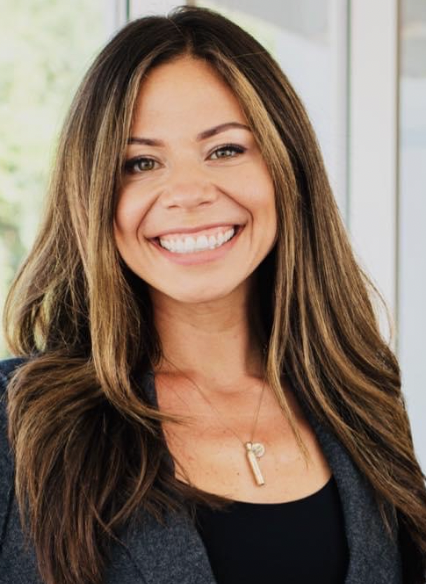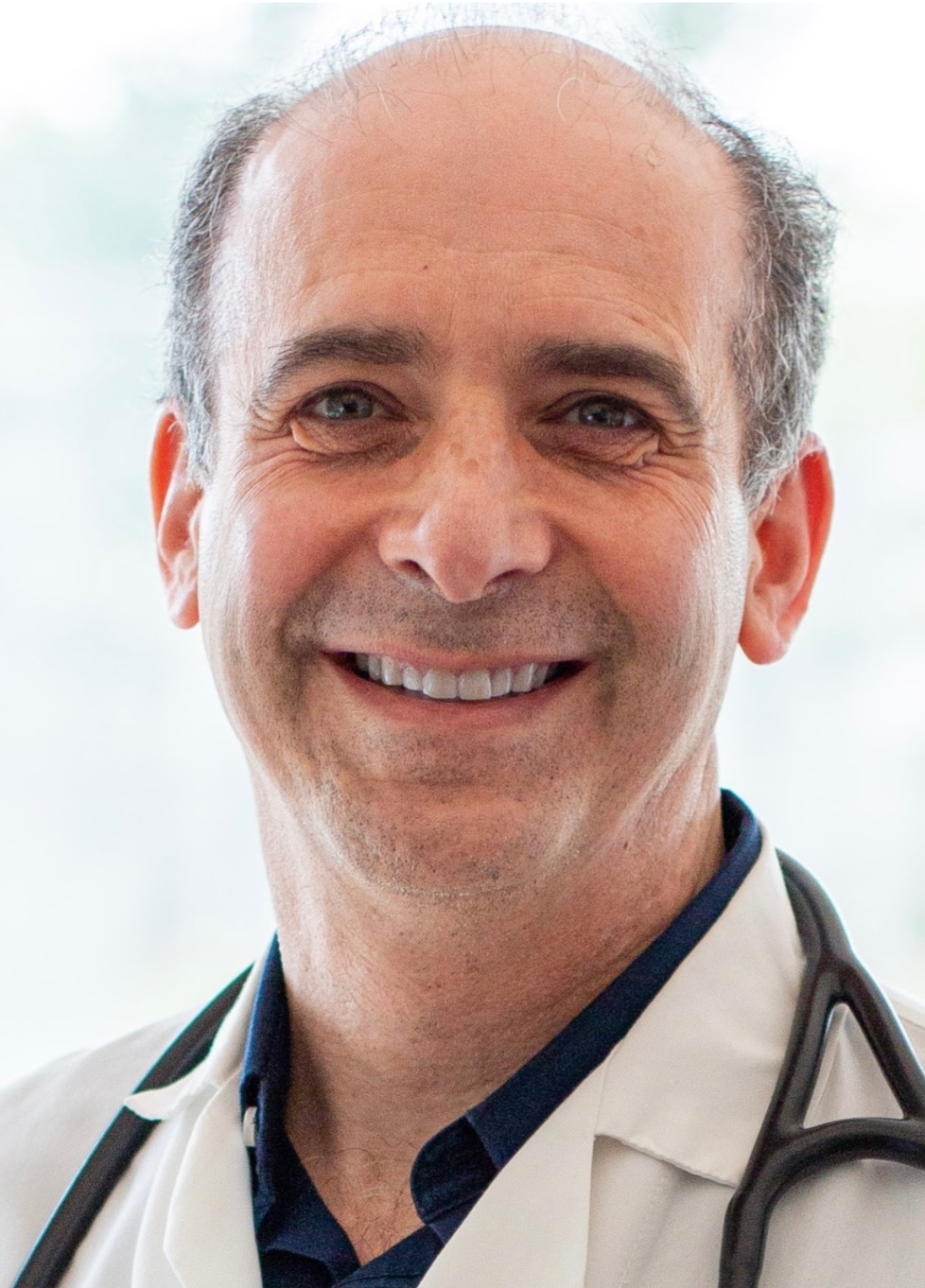165: MedConcerns: Promoting Healthcare Equality for People with Aphasia Hilary Sample, MA, CCC-SLP and Steven Richman MD
Hilary and Steve developed the MedConcerns app to help healthcare providers and families overcome the challenges of understanding and meeting the medical needs and concerns of people with aphasia. In this episode, the app creators share about the healthcare inequality that exists for people with aphasia due to lack of widespread use of effective communication supports, and a lack of training for healthcare providers on meeting unique communication needs. They discuss how this app was designed to increase access to healthcare for people with aphasia, while also reducing the communication challenge for healthcare providers.
Key Takeaway:
People with aphasia have a right to equal access to healthcare, and can communicate with the right supports. The MedConcerns app embeds communication supports, making patient-provider communication easier no matter the level of training.
Resources
References:
Bartlett, G., Blais, R., Tamblyn, R., Clermont, R. J., & MacGibbon, B. (2008). Impact of patient communication problems on the risk of preventable adverse events in acute care settings. Canadian Medical Association Journal, 178(12), 1555–1562. https://doi.org/10.1503/cmaj.070690
Baylor, C., Brown, C., Mroz, T. M., & Burns, M. (2022). Understanding How Older Adults with Communication Difficulties Access Health Services: What We Can Learn from the National Health and Aging Trends Study (NHATS). Seminars in Speech and Language, 43(3), 176–197. https://doi.org/10.1055/s-0042-1749618
Baylor, C., Burns, M., McDonough, K., Mach, H., & Yorkston, K. (2019). Teaching Medical Students Skills for Effective Communication With Patients Who Have Communication Disorders. American Journal of Speech-Language Pathology, 28(1), 155–164. https://doi.org/10.1044/2018_AJSLP-18-0130
Burns, M., Baylor, C., Dudgeon, B. J., Starks, H., & Yorkston, K. (2015). Asking the Stakeholders: Perspectives of Individuals With Aphasia, Their Family Members, and Physicians Regarding Communication in Medical Interactions. American Journal of Speech-Language Pathology, 24(3), 341–357. https://doi.org/10.1044/2015_AJSLP-14-0051
Cameron, A., McPhail, S., Hudson, K., Fleming, J., Lethlean, J., Tan, N. J., & Finch, E. (2018). The confidence and knowledge of health practitioners when interacting with people with aphasia in a hospital setting. Disability and Rehabilitation, 40(11), 1288–1293. https://doi.org/10.1080/09638288.2017.1294626
Cameron, A., McPhail, S. M., Hudson, K., Fleming, J., Lethlean, J., & Finch, E. (2017). A pre–post intervention study investigating the confidence and knowledge of health professionals communicating with people with aphasia in a metropolitan hospital. Aphasiology, 31(3), 359–374. https://doi.org/10.1080/02687038.2016.1225277
Carragher, M., Steel, G., O’Halloran, R., Torabi, T., Johnson, H., Taylor, N. F., & Rose, M. (2021). Aphasia disrupts usual care: The stroke team’s perceptions of delivering healthcare to patients with aphasia. Disability and Rehabilitation, 43(21), 3003–3014. https://doi.org/10.1080/09638288.2020.1722264
Clancy, L., Povey, R., & Rodham, K. (2018). “Living in a foreign country”: Experiences of staff–patient communication in inpatient stroke settings for people with post-stroke aphasia and those supporting them. https://doi.org/10.6084/m9.figshare.7144853.v1
Forsgren, E., Hartelius, L., & Saldert, C. (2017). Improving medical students’ knowledge and skill in communicating with people with acquired communication disorders. International Journal of Speech-Language Pathology, 19(6), 541–550. https://doi.org/10.1080/17549507.2016.1216602
Hur, Y., & Kang, Y. (2021). Nurses’ experiences of communicating with patients with aphasia. Nursing Open, 9(1), 714–720. https://doi.org/10.1002/nop2.1124
Hurtig, R. R., Alper, R. M., Bryant, K. N. T., Davidson, K. R., & Bilskemper, C. (2019). Improving Patient Safety and Patient–Provider Communication. Perspectives of the ASHA Special Interest Groups, 4(5), 1017–1027. https://doi.org/10.1044/2019_persp-19-00134
King, J. M., & Simmons-Mackie, N. (2017). Communication Supports and Best Practices: Ensuring People with Aphasia Have an Effective Means of Expressing Needs and Wishes. Topics in Language Disorders, 37(4), 348–360. https://doi.org/10.1097/TLD.0000000000000135
Morris, M. A. (2022). Striving Toward Equity in Health Care for People With Communication Disabilities. Journal of Speech, Language, and Hearing Research, 65(10), 3623–3632. https://doi.org/10.1044/2022_JSLHR-22-00057
Murphy, J. (2006). Perceptions of communication between people with communication disability and general practice staff. Health Expectations, 9(1), 49–59. https://doi.org/10.1111/j.1369-7625.2006.00366.x
Simmons-Mackie, N., Raymer, A., & Cherney, L. R. (2016). Communication Partner Training in Aphasia: An Updated Systematic Review. Archives of Physical Medicine and Rehabilitation, 97(12), 2202-2221.e8. https://doi.org/10.1016/j.apmr.2016.03.023
van Rijssen, M. N., Veldkamp, M., Bryon, E., Remijn, L., Visser-Meily, J. M. A., Gerrits, E., & van Ewijk, L. (2022). How do healthcare professionals experience communication with people with aphasia and what content should communication partner training entail? Disability and Rehabilitation, 44(14), 3671–3678. https://doi.org/10.1080/09638288.2021.1878561
Contact information:
info@communicationrescue.com
hilary@communicationrescue.com
steve@communicationrescue.com
Thanks for these great resources, Hilary and steven!
Hilary Sample, MA, CCC-SLP
Guest Speaker Bio:
Hilary Sample is a speech-language pathologist, Co-founder of Communication Rescue Services, and Co-creator of the MedConcerns app. She currently provides full time SLP services to patients in acute care, inpatient rehabilitation, and outpatient settings. For most of her career, Hilary has worked primarily with stroke and brain injury populations in the inpatient rehabilitation hospital setting. She has a passion for education and innovation, serving as student and peer mentor, developing programs, staff competencies and training, and guest lecturing whenever asked. Outside of her clinical work and her work with Communication Rescue Services, Hilary also serves as adjunct instructor at Cleveland State University. She has presented at the state and national level, including the Ohio Speech Language Hearing Association (OSLHA), the American Speech Language Hearing Association (ASHA), and the American Medical Rehabilitation Providers Association (AMRPA).
Guest Speaker Bio:
Dr Richman is a Board Certified Family Physician, Co-founder of Communication Rescue Services, and Co-creator of the MedConcerns app. He works as a hospitalist in the Inpatient Rehabilitation Hospital setting since 2001 (full-time since 2006). Dr. Richman previously had his own outpatient office and has worked in skilled nursing, assisted living, and independent living facilities. He has a passion for improving patient care and safety and is part of multiple interdisciplinary teams that share these goals. He has presented at the state and national level, including the Ohio Speech Language Hearing Association (OSLHA), the American Speech Language Hearing Association (ASHA), and the American Medical Rehabilitation Providers Association (AMRPA).
Steven L Richman, MD
Leigh Ann Porter, MA, CCC-SLP
Host Bio:
Leigh Ann Porter is a medical SLP in San Jose, California. Building on a passion for education and implementing best practice approaches, Leigh Ann created the Speech Uncensored Podcast to connect medical SLPs with meaningful resources, emerging research, and practical tools. Leigh Ann’s goal is to empower and connect SLPs to enhance our profession and accelerate the research to practice pipeline. One of her passions is learning and sharing simple and impactful therapy techniques. In addition to nerding out on medical speech pathology, Leigh Ann loves hiking at national parks, exploring waterways on her stand up paddle board, and enjoying a delicious meal with friends and family.
REVIEW the podcast
You’ll earn my undying gratitude by leaving a review on Apple Podcasts! Reviews help other SLPs find the podcast. Also, I love reading your feedback! Just click here to review, select “Ratings and Reviews” and “Write a Review,” and let me know your favorite part of the podcast. Malaho plenty!














